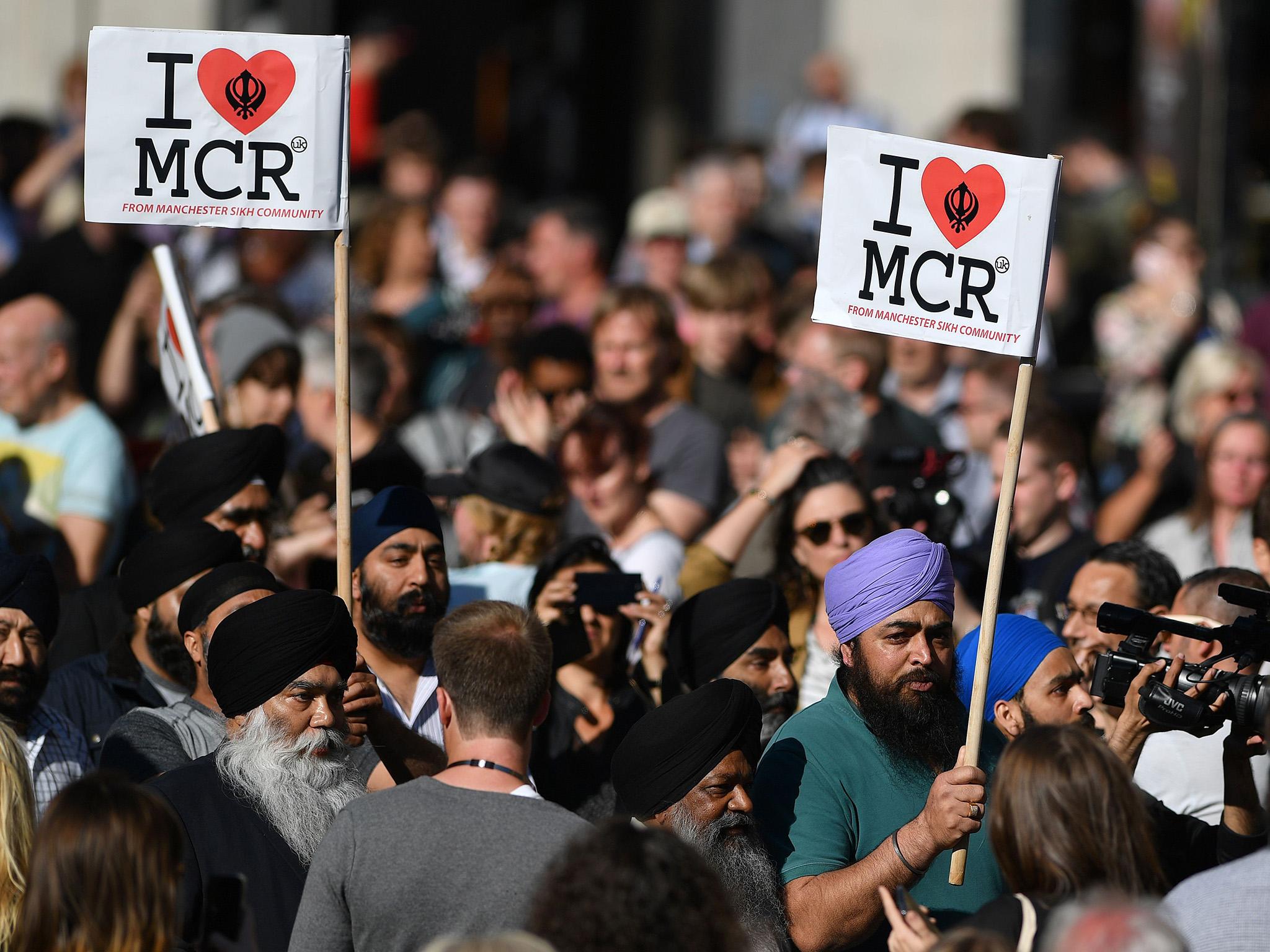Manchester’s response shows the power of the human spirit in the face of human wickedness – but there are questions to be answered
There remains much to be done in the name of broader community cohesion if a small minority of disillusioned young men are not to continue turning to violence in the name of Islam

Manchester is in mourning, grieving for 22 innocent people – children among them – killed by a coward in a suicide vest. The brutality of his actions late on Monday night could not contrast more starkly with the joyfulness which had filled the Manchester Arena earlier in the evening, as young people danced and sang along with American superstar Ariana Grande. The youngest victim to be identified thus far was just eight years old, her life cut sickeningly short by a deluded fanatic.
Responsibility for the massacre was claimed by Isis; the attacker identified as Manchester-born, Salman Abedi. As ever, supporters of Isis have sought to portray the murders as part of a broader clash of civilisations. Mancunians, united in despair but also by their determination to carry on in the face of this outrage, have given the lie to such a characterisation. In the aftermath of the assault ordinary people of every stripe joined the emergency services in helping the injured and the traumatised. Their response showed the power of the human spirit in the face of human wickedness.
For years the UK’s security services have known that attacks by Islamist-inspired terrorists were highly likely on British soil. Yet plots to commit mass murders of the kind seen in Paris, Brussels, Nice and Berlin had been prevented on numerous occasions. The longer the 2005 Tube bombings receded into the distance, the safer we felt. Now, for the second time in two months, Britain is recalibrating its collective sense of anxiety.
The Westminster attack in March, which left five victims dead and dozens injured, was a demonstration of how easily a determined killer could run amok. Khalid Masood, who security agencies believe acted alone, needed only a car and knife to bring death to London. His actions were unnerving precisely because they were low-tech. By contrast, the attack in Manchester will send a shudder through MI5 because of its sophistication. Contrary to popular belief, successfully making and detonating a bomb at a city centre target is not easy. Anti-terror officers will be trying desperately to work out how Abedi slipped under the radar to carry out his plan; and they will be working even more frantically to establish whether he was part of a wider network, either in this country or elsewhere.
Abedi’s Libyan heritage will be examined, of course. But perhaps it is his status as a local that will be most troubling to the people of Manchester. He was, on the face of it, part of the city’s wonderful, multifaceted fabric. Now we know he was anything but; by the time of his death he plainly wanted only to destroy it, and himself. What this demonstrates is that there remains much to be done in the name of broader community cohesion if a small minority of disillusioned young men are not to continue turning to violence in the name of Islam.
A further question which the security services here will wish to consider is why Abedi’s name was reported first by American media, seemingly on the basis of briefings by US officials. Likewise, the first indications that the attack was the work of a suicide bomber came from the States. Plainly British agencies knew these details but had been seeking to delay the spread of information. Their appearance in the US created confusion and gave the impression that the UK’s security chiefs were not fully in control of the operation. Whatever tensions there may be in the relationship between Britain and America under its current President, it is imperative that the countries’ respective law-enforcement agencies maintain an effective and trusting partnership.
It is more than two decades since Manchester was targeted by an IRA bomb which injured more than 200 people. The city was badly shaken then but it was not bowed. Today its heart has been broken, but it will mend. Terror will be defied – and in the end defeated.
Join our commenting forum
Join thought-provoking conversations, follow other Independent readers and see their replies
Comments
Bookmark popover
Removed from bookmarks